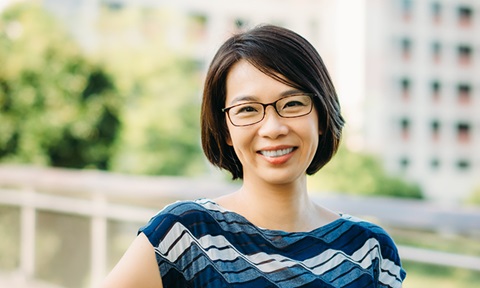Teacher-parent partnership important in motivating secondary school students: NIE studies
SINGAPORE – When parents and teachers communicate and work together, students feel more supported and motivated in their studies.
This is according to the findings of two studies by the National Institute of Education (NIE) released in May about how parents and teachers impact students’ academic motivation.
Dr Wong Zi Yang, an NIE research fellow, led one study to understand how support from parents and teachers, which allowed students to make their own choices and be vocal about their thoughts, impacted how driven they were in their studies.
As part of the study, two surveys of 4,542 Secondary 1 to 3 students from seven schools in Singapore found that students actually influence the support they receive from teachers.
When students exhibit academic motivation, they perceive that their teachers provide them with more support.
Also, while teacher support had a greater impact on students compared with parental support, students perceive that they are most intrinsically motivated when they receive support from both parents and teachers.
Dr Wong said that these findings can help parents and teachers be more aware and less discouraged about providing support to unmotivated and disengaged students.
“Students who are disengaged and not motivated tend to invite less support, which in turn makes them less motivated and engaged over time. So being aware of the dynamics between students, teachers and parents allows us to be more self-aware of the support we give students,” he added.
Associate Professor Arief Liem, from NIE’s psychology and child and human development academic group, led another study on how academic expectations from parents and teachers impacted students’ motivation towards their studies.
After surveying 3,082 Secondary 1 to 3 students from nine schools in Singapore, it was found that when students believed that their teachers and parents were both confident of their academic abilities, they were more motivated to do well in school.
Both studies were conducted in 2023 as part of a larger study project by NIE called Dreams: Drivers, Enablers And Pathways Of Adolescent Development In Singapore.
This broad NIE project was commissioned by the Ministry of Education, and follows 7,000 adolescents throughout their four- or five-year journey in secondary school.
It consists of seven sub-studies, with each investigating a key area of adolescent development.
Dr Melvin Chan, who is assistant dean of knowledge management at NIE’s Office of Education Research, is a co-lead principal investigator for Dreams.
He said: “Students tend to internalise messages from parents and teachers who believe in their abilities. Then they will also want to do well. And in a way, they will want to reciprocate these expectations from their parents and teachers onto themselves by doing well in school.”
He added that findings from both studies emphasise the importance of parents and teachers working together to optimise students’ motivation.
“Both parents and teachers have a very synergistic effect on student motivation. So it will be good for parents and teachers to communicate and convey positive expectations to the students consistently,” said Dr Chan.
Mr Zuriel Zhuo, 44, a former secondary school teacher, said that while secondary schools usually have three touchpoints for parents in Secondary 1 – orientation at the start of the year, mid-year review and end-of-year review – it is important to keep communication pathways between parents and teachers open.
“Sometimes parents may be unfamiliar with the education landscape in secondary school, and it may also be their first time dealing with teenagers, so communicating with the teachers can help,” he said.
Mr Zhuo added that he understands why parents like himself prefer not to communicate with teachers in secondary school as often as they did with teachers when their children were in primary school.
“I’m more old school – if I don’t hear from the teacher, it’s a good thing. At the same time, I want to show my son, who is in secondary school, that I trust him more by not checking in with his teachers constantly.”
His sentiments are echoed by another parent, Ms Tunitha Reku, 44, who has three children in secondary school.
“In primary school, my children’s teachers communicated with me regularly on WhatsApp, so the relationship was more intimate. But in secondary school, the kids have their own mobile phones, so the teachers message them directly. It’s just a natural progression,” she said.
Read the original article here.
Source: The Straits Times © SPH Media Limited. Permission required for reproduction.














/enri-thumbnails/careeropportunities1f0caf1c-a12d-479c-be7c-3c04e085c617.tmb-mega-menu.jpg?Culture=en&sfvrsn=d7261e3b_1)

/cradle-thumbnails/research-capabilities1516d0ba63aa44f0b4ee77a8c05263b2.tmb-mega-menu.jpg?Culture=en&sfvrsn=1bc94f8_1)

.tmb-listing.jpg?Culture=en&sfvrsn=2fc01c67_1)

.tmb-listing.jpg?Culture=en&sfvrsn=f6ef902b_1)

.tmb-listing.jpg?Culture=en&sfvrsn=5b5c5448_1)